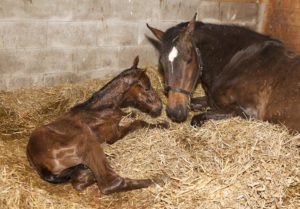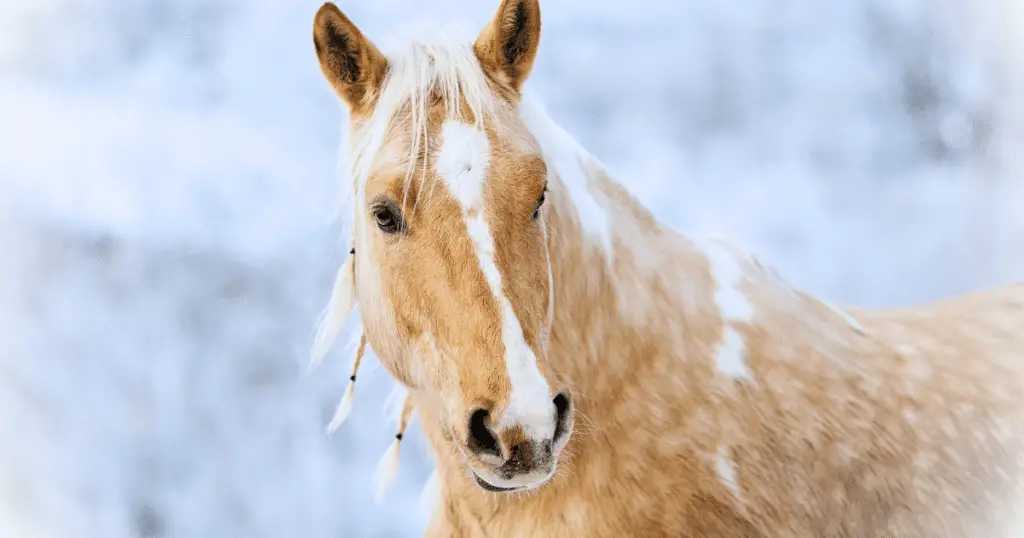
It’s not uncommon for mares to experience mild colic following foaling. However, even seemingly minor postpartum complications can quickly escalate into life-threatening situations. In this article, we discuss colic and other postpartum emergencies that may arise.
During birth, there is immense pressure placed on your mare’s abdomen and pelvis.
Powerful uterine contractions may not only lead to vaginal tears, but serious gastrointestinal injuries that may result in rupture and internal bleeding that could cost your mare’s very life.
What may begin as mild colic, may eventuate into a life-threatening situation. As such, any postpartum complication should be attended to by your veterinarian.
Likewise, any mare that experiences difficulty during parturition should undergo a complete physical and reproductive examination following foaling.
In addition to colic, some of the postpartum complications that may occur after birth, include:
- Vaginal or uterine tears
- Rectal or uterine prolapse
- Uterine artery rupture
- Intestinal rupture
Colic
Among these potential complications, mild colic is perhaps the most common, but its symptoms shouldn’t be ignored.
Colic usually occurs during the final stage of parturition, as your mare’s uterine contractions continue in an effort to expel the placenta and any remaining fluids.
Watch your mare carefully in the hours following foaling. If colic signs persist after two hours, call your veterinarian for support.
Vaginal or Uterine Tears
At times, colic may be suspected when it is, in fact, vaginal or uterine tears that are causing your mare pain and discomfort.
Any injury of the reproductive tract can compromise the reproductive health of your mare. For example, septic peritonitis, an infection caused by uterine fluid leaking into the abdominal cavity.
Vaginal and uterine tears will require medical management and possibly surgery to repair. A postpartum examination will enable your veterinarian to assess the extent of any injuries.
Rectal or Uterine Prolapse
While less common, a rectal or uterine prolapse is certainly no less serious than any other postpartum complication.
You may recognise the rectum or uterus has prolapsed if your mare has passed the placenta and abnormal tissues are still protruding from the vulva.
Contact your veterinarian without delay. They will either repair the prolapse in the field or refer your mare to a specialist equine hospital for surgery.
Uterine Artery Rupture
Uterine artery ruptures are most common in older mares that have had numerous foals. They occur as a result of weakening of the uterine walls, which eventually rupture during foaling.
A minor haemorrhage will often manifest itself as colic as the free blood moves into the abdominal cavity. However, a major haemorrhage can be deadly.
With immediate treatment, your veterinarian will be able to administer analgesics to prevent minor bleeding from worsening and decide on the best course of care.
Intestinal Rupture
Lastly, intestinal rupture and colon torsion are two other examples of life-threatening complications that may first appear as colic.
Large colon torsions, in particular, usually occur due to the sudden space in the abdominal cavity following foaling, allowing the colon to displace or twist.
Any severe compromise of the gastrointestinal tract can become deadly in a matter of hours. Your mare will exhibit signs of violent pain and surgical intervention is the only chance for her survival.



